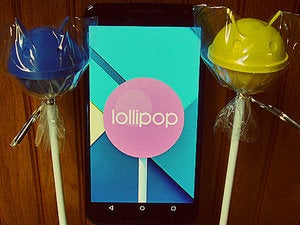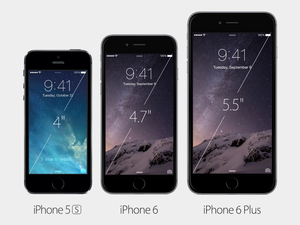A years-long conflict over cyberespionage, fair trade, superpower politics and supercomputers hit another big patch of awkward yesterday, following revelations the U.S. had banned the sale of off-the-shelf Intel Corp. processors to China.
The ban comes from the U.S. Department of Commerce, which accuses the organizations that built Tianhe-2, the world's fastest supercomputer, of acting against the national security interests of the United States by using the Intel Corp. Xeon and Xeon Phi-based supercomputer for "nuclear explosive activities."
The Commerce Dept. put four Chinese organizations, including the National University of Defense Technology (NUDT), where Tianhe-2 is based, on a "Entity List" Feb 18 (PDF) that names them, effectively, as enemies of the United States and bans U.S. companies from selling them militarily sensitive technology.
Agency officials told Intel this week that – because it suspects the four organizations it cited of using Tianhe-2 and other supercomputers to simulate nuclear explosions – Intel could not get permission to continue sending Xeons to China.
Tianhe-2 already has about 48,000 Xeon and Xeon Phis driving its world-leading 33.9TFlop/s of superpower. That number was due to double during an upgrade this year, which is what the Commerce ban is apparently meant to stop.
But there's almost no chance a ban could be effective when anyone with a Paypal account and Internet connection can buy Xeon chips and Xeon Phi coprocessors directly, or get whole supercomputing nodes, shipped fast, on discount.
And the premise of the ban – that simulating nuclear explosions in supercomputer software is a threat to U.S. security, is bogus.
Simulating nuclear explosions in supercomputers isn't a provocation. It's one of the things supercomputers were invented for and, when the U.S. is doing it, is officially considered a Good Thing.
The Department of State brags that U.S. nuclear-weapon-simulation technology makes the world safer by guaranteeing it could be blown up if necessary, without having to blow up bits of it to prove the point.
The Department of Energy (DoE) brags that it has been testing nuclear weapons in the supercomputing lab rather than in the open air since 1992 – the year international treaties banned live nuclear-weapons tests. It brags about how extensive its nuclear-testing programs are, bragged that its weapons testers were the fastest supercomputers in the world right up until Tianhe-2 blew past them in the rankings.
The DoE is already bragging about its next big supercomputer – Cori, which will be the first to use the newest Knights Landing version of the Xeon Phi coprocessor – a monster with approximately 8 billion transistors on each processor and three times the performance of the Xeons currently being blocked from shipment to China.
The ban doesn't appear to be a real ban any more than the demand last May that China extradite five active-duty military officers to be prosecuted for espionage in the U.S. for following legal orders in their own country was a serious effort to put anyone in jail.
Like that incident, which tried to punish entities very close to the Chinese government but not accuse the government itself, appears to be an effort to annoy China without really accomplishing anything.
As a global trade policy, the decision is foolish and unenforceable.
As diplomacy, it's the same kind of schoolyard stealth-noogie as the cyberespionage indictment in May of 2014, which accomplished little except to set off a tit-for-tat series of sometimes-picayune bits of retaliation, including a threat by China to ban U.S. technology products it felt might be a detriment to its national security.
Commerce Dept. officials may simply be trying to sandbag Tianhe-2 by blocking the components for the upgrade that could keep it in the top spot on the Top500 for another year, well, that would be a little petty even for government work.
If that's not the reason (and it's not), then it's not clear who the Commerce Dept. is trying to punish, or what officials hope to accomplish by it.
The most likely reason is simply to take advantage of any point of leverage to help move China on any of the restrictions it has put on foreign IT products -- higher barriers to cross in selling banking technology, for example, and counterterrorism rules that require foreign companies to turn over encryption keys and install backdoors in their software, among other things.
The Obama administration has criticized the new rules as invasive and damaging to China's economy, apparently with a straight face and no reference to the frequent warnings from FBI directors, former directors of the NSA and CIA that U.S. tech companies shouldn't use encryption feds can't break and frequent demands that they install back doors to make surveillance easier for law enforcement.
As leverage, making it a little more difficult for the NUDT to buy Xeon and Xeon Phi chips for Tianhe-2 is pretty weak. As diplomacy that depends at least as much on finding a big stick as it does saying 'Nice Doggie' until you find one, it's even worse.
Threatening China for spying on us, at the same time the Snowden documents detail the far more complex and effective ways we've spied on them does not reinforce the confidence of Chinese leaders that Americans are trying to negotiate honest deals instead of scams.
Slamming Chinese officials in public for having powers U.S. agencies often demand, or take on the sly when no one's looking, doesn't help reduce the impression that we're raging hypocrites, either. The FBI reportedly works so hard to keep use of the Stingray cell-phone surveillance system secret than it has repeatedly asked judges to release suspects charged with non-violent crimes in order to avoid acknowledging use of the system, which is not as discerning about what phone calls it picks up as a warrant would require.
The ACLU has identified 48 agencies in 20 states that use Stingray systems, which set up fake cell phone towers to intercept calls so the metadata, location and content of phone calls, texts and Internet traffic can all be intercepted -- often all the traffic for all the phones in the area, not just those belonging to specific people being investigated for specific crimes, as law enforcement agencies would have to do if they were seeking search warrants. They're not. They're breaking the most fundamental rules in U.S. law about how the government should treat residents (the 4th Amendment is the biggie, but it was one of the issues that caused the American Revolution and there is a large canon of written and common law defining what's appropriate and what's not. Stingray violates all of them.)
Chinese officials have no trouble recognizing hypocrisy, and aren't shy about calling us out on it when U.S. officials call on China to do the right thing while aggressively doing the wrong thing themselves.
The Commerce Dept. ban on Xeon chips for China makes no sense in practical terms because it does nothing to prevent the organizations being banned from getting the chips anyway. It make no sense in national security terms because the nuclear-weapons development work it supposedly punishes is routine for most nuclear-armed nations -- especially those that signed a treaty 23 years ago agreeing not to to any more live-fire tests with nuclear weapons. It makes no diplomatic sense because it offends a negotiating partner without any hope of accomplishing anything.
It doesn't even make technological sense if the idea is to limit China's access to the most advanced chips, but it's the present generation being held back, not yet the next generation. The most advanced chips of that particular kind are the Knight's Landing version of Xeon Phi, a monster of a processor that acts as both a CPU and GPU, has more than 8 billion transistors, three times the throughput of current Xeon Phis and which Intel has almost certainly shared with the R&D crew supporting the most powerful supercomputer on Earth. Even if they can't get any until then, as soon as Knights Landing ships, China will be able to buy as many as it wants -- if it goes through third parties rather than directly to Intel itself.
So the ban accomplishes none of its nominal or real goals; it exposes the Obama administration and U.S. law enforcement indulging in the worst kind of hypocrisy (ineffective and obvious) and -- as a special bonus -- includes an economic penalty on a U.S.-based company rather than the foreign company being sanctioned, which is pretty much the opposite of what a Commerce Department is supposed to do.
The only thing better about the Commerce Dept. ban compared to last year's DoJ demand that China send us their best cyberspies to imprison is that the ban didn't outrage and motivate the target it meant to intimidate as effectively as the DoJ indictment managed to do last May.
Neither will accomplish anything; both will make the U.S. government and its effort to limit the depredations of a less-technically sophisticated rival look stupid and ineffective. And both will erode credibility in the U.S. ability to enforce its will online, or even state its own principles without making itself look worse that the oppressive nations it criticizes.
Interesting piece of work, Commerce. You managed to violate your primary responsibility toward a major U.S. tech company while making the U.S. more vulnerable and less credible internationally, without actually accomplishing any of your stated or your actual goals. Epic, multitudinal, recursively counterproductive, highly efficient but not very effective fail, so even the blowback won't have much impact. Thanks for the leadership.


















